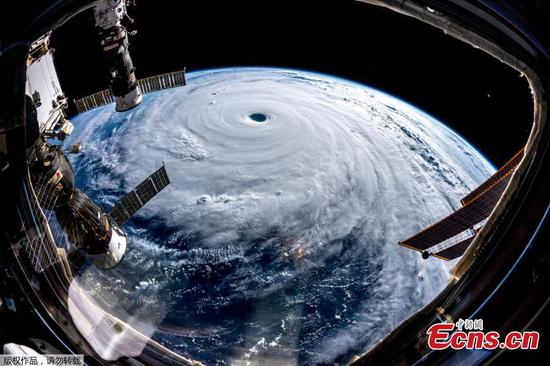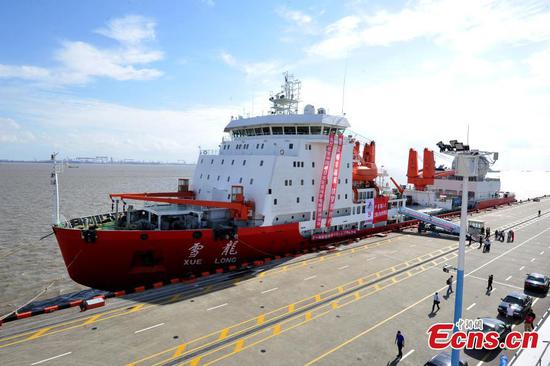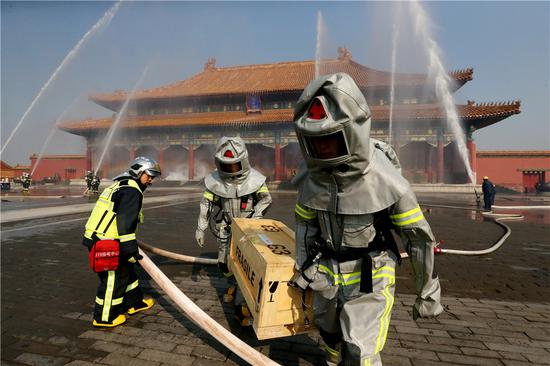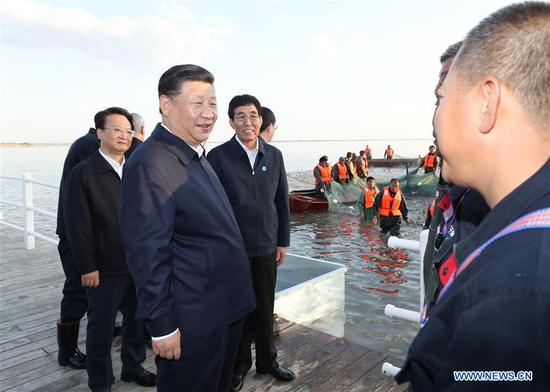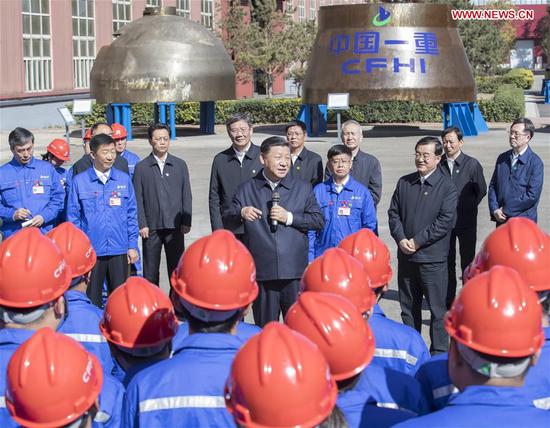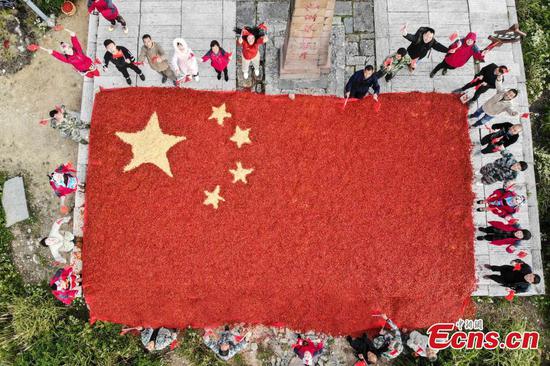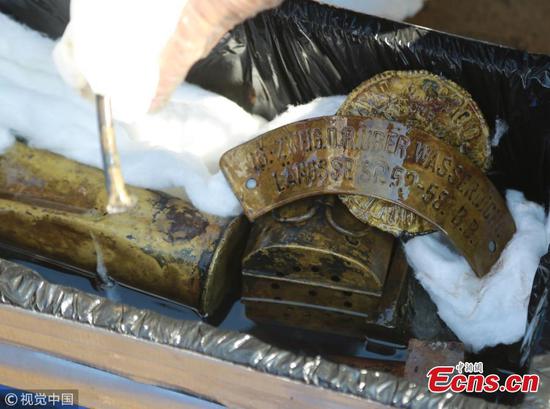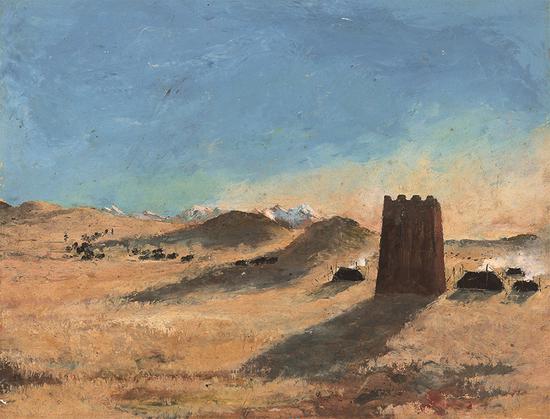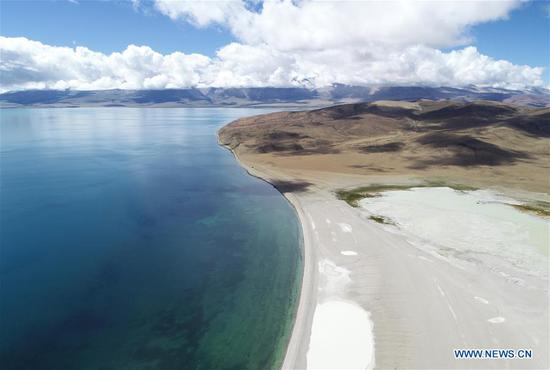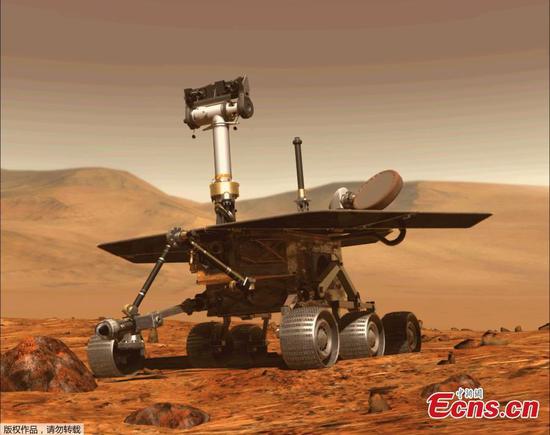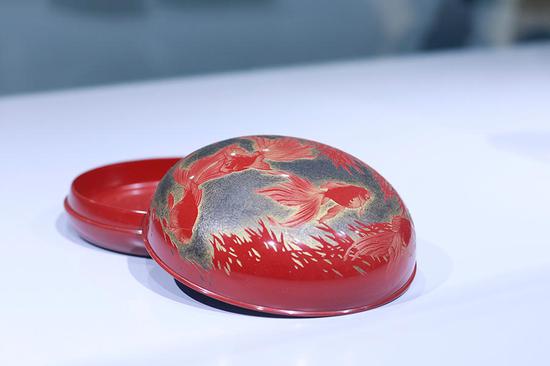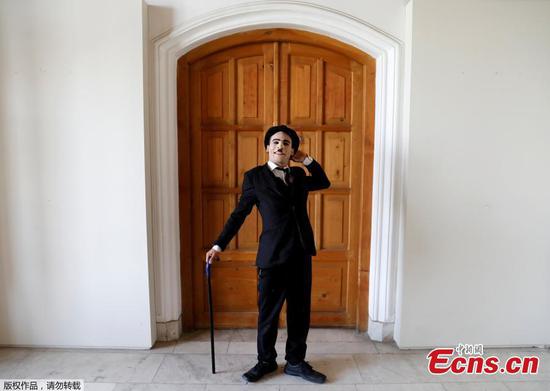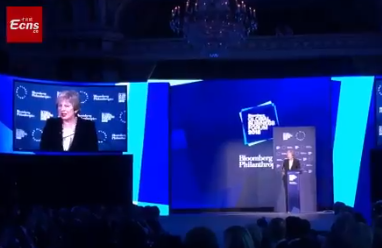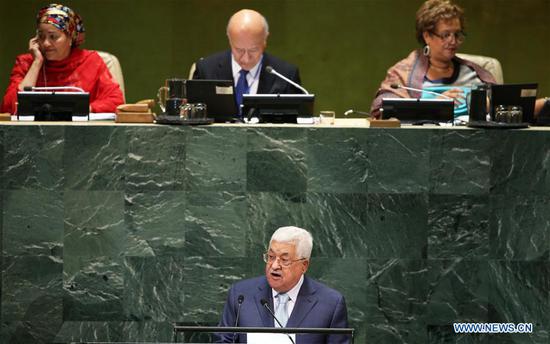
Palestinian President Mahmoud Abbas (bottom) addresses the General Debate of the 73rd session of the United Nations General Assembly at the UN headquarters in New York, on Sept. 27, 2018. (Xinhua/Qin Lang)
Palestinian President Mahmoud Abbas said on Thursday that the hostile policy actions of the Trump administration against the Palestinians have undermined the two-state solution, urging Washington to reverse these decisions.
Speaking at the General Debate of the UN General Assembly, Abbas cited U.S. decisions to recognize Jerusalem as the Israeli capital, move U.S. embassy there from Tel Aviv, cut off funding for the Palestinians and close the Palestine Liberation Organization (PLO) office in Washington.
"With all of these decisions, this administration has reneged on all previous U.S. commitments, and has undermined the two-state solution, and has revealed its false claims of concern about the humanitarian conditions of the Palestinian people," Abbas said. "It's really ironic that the American administration still talks about what they call the 'deal of the century.'"
"But what is left for this administration to give to the Palestinian people? Only humanitarian solutions?" He asked. "What is left as a political solution?"
The Palestinian leader lashed out at the U.S. actions behind the peace plan.
"We awaited his peace initiative with utmost patience, but were shocked by decisions and actions he undertook that completely contradict the role and commitment of the United States towards the peace process," he said.
"The U.S. acts as a mediator, however, now we view the U.S. with new eyes. The U.S. cannot be a mediator single-handedly," he added. "We will also not accept sole American mediation in the peace process because the U.S. administration has lost its eligibility due to its recent decisions."
"From this august platform, I renew my call to President Trump to rescind his decisions and decrees ... in order to salvage the prospects for peace and to achieve stability and security for future generations in our region," Abbas said.
"I must reiterate that we are not against negotiations and have never rejected negotiations," the Palestinian leader added. "We will continue to extend our hands for peace."
Abbas noted that there could be no peace without an independent Palestinian State, with east Jerusalem as its capital, and not some place in East Jerusalem as its capital, and with all of its holy sites.
"There is no peace otherwise. There is no peace with a state of temporary borders," he said.
"Jerusalem is not for sale," Abbas said. "The Palestinian people's rights are not up for bargaining."
U.S. President Donald Trump said on Wednesday he would present the principles of plan in the next "two to three to four months" to promote peace between Israel and Palestine, adding he wanted a two-state solution to resolve the Israeli-Palestinian conflict.
"I really believe something will happen. It is a dream of mine to be able to get that done prior to the end of my first term," Trump said, referring to the peace agreement on the conflict. "I like a two-state solution. That's what I think works best."
The Trump administration has always argued that it would support a two-state solution if both sides agreed to it. But this is the first time Trump has explicitly backed it.
However, Husam Zomlot, head of the PLO's office in Washington, told AFP that the White House's "words go against their actions and their action is absolutely clear (and) is destroying the possibility of the two-state solution,"
He added that Trump's comments alone were not enough to bring the Palestinians back to the negotiating table.
The Trump administration earlier this month announced its decision to close the PLO's office in Washington, a new move to step up pressure on the Palestinians.
Earlier this year, the Trump administration launched a string of U.S. funding cuts against the Palestinians to push them back to the negotiating table.
In December last year, the United States recognized Jerusalem as Israel's capital, an unconventional step announced by Trump himself that sparked global outcry and an absence of the furious Palestinians in talks mediated by Washington.















